IN THE NOW IN THE

IN THIS ISSUE:
• Florida’s New Law Against Squatters - A Game-Changer for Homeowners
• More Money, More Problems: Pursuing Post-Judgment Advances After Redemption
• Once Indispensable, Always Indispensable: New Florida’s 4th DCA’s Mortgage Foreclosure Opinion
• Florida’s 2nd DCA Holds Waiver Of Homestead Not Required To Be Attached To Mortgage
• The Extent of the Court’s Equitable Powers in Mortgage Foreclosure Cases
• NY Court Greenlights Late Service in Lender’s Favor
• Client Alert - Florida’s 4th DCA Overturns Desbrunes Case!
Q2 2024
MORTGAGE FORECLOSURE & DEFAULT SERVICES EDITION
WELCOME EDITOR’S LETTER
 Jason M. Vanslette Editor and Chair of the Mortgage Foreclosure & Default Services Division
Jason M. Vanslette Editor and Chair of the Mortgage Foreclosure & Default Services Division
–Mark Twain “ “
Buy land, they’re not making it anymore.
We are excited to share recent changes to the 2024 real estate industry through legislative regulations and appellate decisions. In this quarterly publication, we will discuss the recent case law opinions on indispensable parties to a foreclosure action, equitable powers of the foreclosure courts, and the ongoing post-judgment advances saga in Florida. We will also discuss the new “squatter” eviction statute that will assist all landlords and investors starting this summer of 2024.
We will also dig into a recent New York decision regarding service of process delays past the 120day service rule. These articles were specifically selected and written by our attorneys in all our offices (i.e., Florida, Illinois, Indiana, and New York) to keep our client base well-informed of the changing legal landscape. We hope you find these articles informative and enjoy reading them.


FLORIDA’S NEW LAW AGAINST SQUATTERSA GAME-CHANGER FOR HOMEOWNERS
. . . . . . . . . . . . . . . . . . . . . . . . . . . . . . . . . . 4-5 MORE
. . . . . . . . . . . . . . . . . . . . . . . . . . . . . . . . . . . . . . . . . . . . . . . . . . 6 ONCE
FORECLOSURE OPINION . . . . . . . . . . . . . . . . . . . . . . . . . . . . . . . . . . . . 7-8 FLORIDA’S 2ND DCA HOLDS WAIVER OF HOMESTEAD NOT REQUIRED TO BE ATTACHED TO MORTGAGE . . . . . . . . . . . . . . . . . . . . . . . . . . . . . . . . . . . . . . . . . . . 9-10 THE EXTENT OF THE COURT’S EQUITABLE POWERS IN MORTGAGE FORECLOSURE CASES . . . . . . . . . . . . . . . . . . . . . . . . . . . . . . . . . . . . . . . . . . . . . . 10-12 NY COURT GREENLIGHTS LATE SERVICE IN LENDER’S FAVOR . . . . . . . . . . . . . . . . 12-13 CLIENT ALERT - FLORIDA’S 4TH DCA OVERTURNS DESBRUNES CASE! 14-15 CONTRIBUTORS 16-19 AWARDS AND ACCOLADES 20-21 FIRM OVERVIEW 22-23 CONTENTS TABLE OF
MONEY, MORE PROBLEMS: PURSUING POST-JUDGMENT ADVANCES AFTER REDEMPTION
INDISPENSABLE, ALWAYS INDISPENSABLE: NEW FLORIDA’S 4TH DCA’S MORTGAGE

Florida’s New Law Against Squatters - A Game-Changer for Homeowners
 By: Jason M. Vanslette, Editor and Chair of the Mortgage Foreclosure & Default Services Division
By: Jason M. Vanslette, Editor and Chair of the Mortgage Foreclosure & Default Services Division
BACKGROUND:
KK TAKEAWAY:
Starting July 1, 2024, a new Florida law will become effective, allowing a quick and inexpensive solution for residential homeowners to prevent squatters from unlawfully residing in their properties.
Residential property owners, landlords, and investors in Florida, as in many states, continually have to deal with transient individuals, also frequently called “squatters,” unlawfully possessing and/or living in another individual’s property without the owner’s permission or any formal authority from the owner(s). Many property owners believe that “calling the police” is the simple solution to someone breaking into your home or unlawfully possessing it. However, many homeowners are surprised to hear that the police will not assist, advising distressed owners that this is a “civil court” problem, not a criminal matter.
To make matters worse, up until recently, a homeowner would have to hire an attorney, file a lawsuit similar to an eviction (called an “Unlawful Detainer” lawsuit), and obtain a court order for possession or eviction (called a “Writ of Possession”) before the police would remove
4 | IN THE NOW
the “squatter” from the premises. This is not only an expensive process due to attorney’s fees and courts costs, but also a timely one. Owners have to effectuate service of process (i.e., pay for a process server to serve the squatter with the complaint), allow time for the filing of responses after service of process, and obtain a Writ of Possession by the Court before the Sheriff will move forward with an eviction. This costly and lengthy process frustrates the homeowner and allows the squatting parties to continue to live “rent-free” both before and during the eviction process, while simultaneously destructing or even destroying the property during their unlawful tenancy.
Notwithstanding, at the end of the 2024 Florida legislative session, Governor Ron DeSantis signed into law “HB 621”, or the “Property Rights Bill,” which will take effect on July 1, 2024, which aims to protect homeowners from unlawful “squatter” occupations by authorizing a quick removal process and the potential for simultaneous criminal prosecution/arrests (i.e., deterrence). Instead of having to file a civil lawsuit to remove the squatting parties, the homeowners (or its authorized agents) can simply execute and file a verified complaint (with several required disclosures) to the property county’s Sheriff’s Office electronically (via e-mail). This process can be done with or without counsel and almost immediately (i.e., no lawsuit requirements or condition precedents).
Upon receipt of the squatter complaint by the Sheriff’s Office, the Sheriff must verify the information within the complaint “without delay” and put the squatting parties on notice to vacate the premises via hand-delivery or posting the notice on the front door. If the squatter does not vacate voluntarily, the Sheriff will coordinate a
“lockout” with the homeowner in similar fashion to a court-ordered writ of possession. Although the Sheriff is entitled to the same fees as they would in a court-ordered eviction, this is much less expensive and timelier than the traditional lawsuit formality.
Additionally, HB 621 criminalizes squatting behaviors along with other common residential property frauds on the following:
• Any person who makes a false statement in writing to obtain real property or for knowingly and willfully presenting a falsified document conveying property rights is considered a first-degree misdemeanor;
• Any person who unlawfully occupies or trespasses in a residential dwelling and who intentionally causes $1,000 or more in damages is considered a second-degree felony;
• Any person who knowingly advertises the sale or rent of a residential property without legal authority or ownership is considered a firstdegree felony.
Notably, HB 621 does not provide relief for commercial property owners or squatters on “vacant land,” but it will be a welcomed relief for residential homeowners, the most common victims of squatter activities. Being that the law is new, however, there are still several “unknowns” regarding the logistical application of the new law, the availability and resources of the local Sheriff’s office to facilitate the squatter complaints, and whether the State Attorney’s Office(s) will be able to prosecute the new criminal laws successfully. However, HB 621 is still being heralded as a “win” for property owner rights and overall squatter deterrence throughout Florida.
| 5 IN THE NOW
More Money, More Problems: Pursuing Post-Judgment Advances After Redemption
Dawson v. Hernandez, 300 So.3d 248 (Fla. 4th DCA 2020).
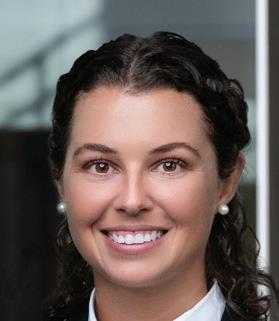 By: Jordan E. Shealy, Attorney
By: Jordan E. Shealy, Attorney
KK TAKEAWAY:
For a lender to obtain post-judgment advances and interest on a redeemed final judgment, an evidentiary hearing may be required in addition to the standard motion and affidavit for postjudgment advances and interest.
BACKGROUND:
In this case, the lender filed an action to foreclose on a commercial property, and the Court granted the summary judgment motion. Subsequently, the borrower was able to redeem the final judgment – which means the final judgment amount was paid to the clerk or the lender – giving the borrower the right to retain the property. The right of redemption is an equitable right given to a borrower on a loan or those claiming under or through them, which allows said borrower to reclaim their estate in the mortgaged property. Court approval is not necessary for this right to be exercised.
Between the final judgment and the property being redeemed, the lender had advanced costs and statutory interest accrued. The lender motioned
the Court for these advances and interest, which is a motion typically done before the property goes to foreclosure sale after final judgment is entered. At that stage of the case, these advances and interest can easily be obtained by submission of a motion and a corresponding affidavit. However, unlike the typical post-judgment scenario, the redeeming party objected to the motion and cited the redemption. The question for the Court to consider was whether a redeemed final judgment could be amended to include post-judgment advances and interest.
The Court held that the redemption did not preclude the lender from moving for postjudgment advances and interest. However, the Court did clarify that more than the typical motion and affidavit would be required should the redeeming party object to the motion for advances and interest. If the redeeming party objects, an evidentiary hearing is required so the full range of cross-examination is afforded to both parties. The difference in cost between a simple motion and affidavit versus the motion, affidavit, and the required evidentiary hearing is exponential. This is because the evidentiary hearing will require an expert witness to testify as to the fees and costs sought in the motion.
The consideration for the lender here is whether the post-judgment fees, costs, and interest are worth the cost of pursuing them should the redeeming party object to the entry of the motion.
6 | IN THE NOW

Once Indispensable, Always Indispensable: New Florida’s 4th DCA’s Mortgage Foreclosure Opinion
 By: Bryan Jones, Attorney
KK TAKEAWAY:
By: Bryan Jones, Attorney
KK TAKEAWAY:
In mortgage foreclosure actions, the property owner when the lis pendens is recorded remains an indispensable party throughout the action, even if the property owner is subsequently completely divested of all interest in the property.
BACKGROUND:
It is axiomatic that the owner of real property that is subject of a foreclosure action is an indispensable party to the lawsuit. In other words, a foreclosure is not legally valid unless the property owner is joined as a defendant. It is also well established that, generally speaking, only parties who maintained an interest in the property when the lis pendens was recorded may appear in or bring defenses to the lawsuit. A person who acquires title to the property after the recording of the lis pendens is generally prohibited from appearing in the case or raising defenses.
It is not uncommon for a property owner to sell or otherwise lose title to the mortgaged property during the pendency of a foreclosure action. When this happens, Florida courts have made clear that the new owner, who took title after the recording of the lis pendens, does not need
| 7 IN THE NOW

to be joined as a defendant to the lawsuit. But until recently, Florida appellate courts had been relatively silent concerning the status of the prior owner, who held title at the time of the lis pendens but had since walked away. It was often assumed that such a party could permissibly be dismissed from the lawsuit. After all, that party had been completely divested of all interest in the property being foreclosed and, in many cases, no longer had any dog in the fight.
This was, indeed, the assumption made by the lender in the case of U.S. Bancorp v. Taharra Assets 5545, Inc., 378 So.3d 630 (Fla. 4th DCA 2024). Unfortunately, for the lender, it assumed incorrectly. In that case, while its ownership interest in the subject property came about under somewhat unusual circumstances, Jasco Construction Company (“Jasco”) was ultimately deemed to be the owner of the mortgaged property at the time of recording of the lender’s lis pendens. Accordingly, Jasco was properly joined as a defendant in the foreclosure suit. However, during the pendency of the action, Jasco executed a quit claim deed to Taharra Assets 5545, Inc. (“Taharra”).
At some point thereafter, the lender dropped Jasco from the lawsuit and proceeded with the
action, ultimately obtaining a final judgment of foreclosure and purchasing the property at the resulting foreclosure sale. The lender then sought a writ of possession to remove Taharra from the property. Taharra countered with a lawsuit seeking to quiet title on the property on the basis that the lender’s foreclosure action was void because Jasco, the owner at the time of the lis pendens, was not a party to the lawsuit at the time the final judgment of foreclosure was entered. At summary judgment, the trial court sided with Taharra, ruling that the foreclosure judgment was void and was, therefore, nothing more than a cloud on Taharra’s title. An appeal would follow.
On appeal, Florida’s Fourth District Court of Appeals affirmed the trial court’s ruling, holding that the foreclosure judgment was, indeed, void. According to the 4th DCA, Jasco remained an indispensable party to the foreclosure action, notwithstanding its sale of the property to Taharra. The Court reasoned that, “Jasco could not defeat its status as an indispensable party to the foreclosure suit by quitclaiming its interest to Taharra, in the same way that Taharra could not become a party to the foreclosure by acquiring an interest in the property after the lis pendens was filed.”
8 | IN THE NOW
While this was doubtedly a crushing blow to the mortgage lender, all was not lost. While the foreclosure judgment was void and Taharra remained the record title owner of the property, Taharra’s ownership interest remained subject to the lender’s mortgage. As a result, the lender may still initiate a new foreclosure action against the property so long as Taharra (or whomever else maintains an ownership interest in the property when the lender records its new lis pendens) is joined as a defendant.
That being said, this case serves as a cautionary tale to mortgage foreclosure plaintiffs to be very careful to ensure that all indispensable parties are joined in the action. It is quite common for defendants in foreclosure suits to request, or even insist, that they be dismissed from the case, and foreclosure plaintiffs must be very discerning in determining who may be dropped and who must remain in the suit. Lenders should rely on experienced and knowledgeable attorneys, like those at Kelley Kronenberg, to assist in navigating these issues.
Florida’s 2nd DCA Holds Waiver Of Homestead Not Required To Be Attached To Mortgage
Capalongo v. Deutsche Bank Nat’l Tr. Co. As Trustee For Morgan Stanley Capital 1 Inc. Tr. 2006-HE2, Mortgage Pass-Through Certificates, Series 2006-HE2 2024 Wl 1288281.
 By: Marc A. Marra, Partner
By: Marc A. Marra, Partner
KK TAKEAWAY:
The Florida Constitution does not require a spouse’s waiver of homestead rights to be physically attached to a mortgage to be effective.

BACKGROUND:
By way of background, a husband and wife owned a property as tenants by the entirety. Subsequently, the wife refinanced and individually signed a new note and mortgage (the “Loan”). On the same day, the husband executed a deed transferring his interest in the property exclusively to his wife. To that deed, the husband attached a document (the “Waiver”) which stated, inter alia, that he joined the “Security Instrument for the sole purpose of subordinating, conveying and/or waiving any current or potential interest in the Property […] including, but not limited to, homestead.”
The wife fell behind on the Loan, and a foreclosure was filed wherein the circuit court granted the lender’s motion for partial summary judgment as to the husband’s affirmative defense, alleging the property was his homestead because he did not execute or join the mortgage. Final judgment was subsequently entered against the wife at trial. The husband and wife then appealed the partial summary judgment, alleging the trial court erred
in entering judgment against husband because the Waiver was not physically attached to the subject mortgage. In support, they cited Article X, Section 4(c) of the Florida Constitution which states that “[t]he owner of homestead real estate, joined by the spouse if married, may alienate the homestead by mortgage.” (Emphasis added).
Florida courts have consistently interpreted Art. X, § 4(c), Fla. Const. as “requiring spousal joinder in the execution of a mortgage on homestead property in order for the mortgage to encumber the property and be enforceable in foreclosure, even where only the signatory spouse is an owner of record on the property’s deed.” Crawford v. Fed. Nat’l Mortg. Ass’n, 266 So. 3d 1274, 1277 (Fla. 5th DCA 2019).
However, in Capalongo, the Second DCA found no merit in the appeal, and no basis under the Florida Constitution nor any controlling legal authority for the proposition that the Waiver was required to be physically attached to the subject mortgage to be effective.

The Extent of the Court’s Equitable Powers in Mortgage Foreclosure Cases
U.S. Bank National Association v. Saunders, 370 So. 3d 673 (Fla. 4th DCA 2023).
 By: Irina Danilyan, Partner
By: Irina Danilyan, Partner
KK TAKEAWAY:
A foreclosure court is a court of equity. While a trial court may exercise its equitable powers in determining whether to grant or deny the equitable relief of foreclosure, the court may not exceed these powers by rewriting the parties’ loan agreements that are the subject of a suit.
In this issue of In The Know, we discuss the importance of understanding the extent of the foreclosure court’s equitable powers. A recent case decided by Florida’s Fourth District Court of Appeal (“Fourth DCA”) establishes that a trial court in a mortgage foreclosure action is not at liberty to use its equitable powers to fashion remedies outside of the scope of those sought by the parties to the case. In U.S. Bank National Association v. Saunders, 370 So. 3d 673 (Fla. 4th DCA 2023), the Fourth DCA held that the court below exceeded its equitable powers by effectively rewriting the loan agreements between the mortgagee and mortgagors.
BACKGROUND:
After Laura and Eugene Saunders (“borrowers”) defaulted under the note and mortgage
modified by a written loan modification agreement, the U.S. Bank National Association (the “Bank”) instituted its third attempted foreclosure action. The trial court found in the borrowers’ favor on the mortgage foreclosure count, denied foreclosure for the third time, and ultimately entered an amended final judgment. However, in the judgment for the borrowers, the trial court established a new balance due on the mortgage and ordered the borrowers to begin making payments on the new balance. The new balance excluded the interest, advances, and a deferred principal balance the Bank had alleged the borrowers owed. After the trial court denied the Bank’s motion for rehearing, the Bank gave notice of appeal.
DISCUSSION:
In its well-reasoned opinion, the District Court provided an insightful discussion of whether the trial court properly used its equitable powers to modify the loan terms. The court initially observed that the Florida Supreme Court has explained in its seminal decision, Bartram v. U.S. Bank Nat’l Ass’n, 211 So. 3d 1009 (Fla. 2016), that after an unsuccessful foreclosure, the parties are placed back in the same contractual relationship as before, where the mortgage remained an installment loan and the acceleration of the mortgage declared in the unsuccessful foreclosure action is revoked.
The Fourth DCA explained that the new mortgage repayment terms fashioned by the trial court did not bring the parties back to their relationship status prior to the foreclosure filing. On the contrary, the trial court’s judgment effectively rewrote the parties’ agreements by adopting the unpaid principal balance alleged in the Bank’s
| 11 IN THE NOW
complaint yet ignoring the deferred principal balance under the modification agreement, as well as the costs, expenses, and advances as provided in the note and mortgage. In other words, the judgment contradicted the essential contractual terms favorable to the Bank to which the mortgagors and the Bank had agreed.
Recognizing that the borrowers did not seek to amend the loan terms in their pleadings and applying established Florida decisional law, the District Court properly concluded that the trial court granted relief beyond that requested in the pleadings. See Wachovia Mortg. Corp. v. Posti, 166 So. 3d 944 (Fla. 4th DCA 2015). Finding a recent decision by its sister court Ivy Chase Apartment Property, LLC v. Ivy Chase Apartments, Ltd., 352 So. 3d 33 (Fla. 2nd DCA 2022) instructive, the Fourth DCA further reasoned that the trial court could not use its equitable powers to amend the loan terms that are unambiguous and undisputed. In Ivy Chase, the Second DCA reversed the trial court’s order, which ignored the express default interest rate provided by the note and fashioned a new rate. The Fourth District agreed that while trial courts may invoke equitable considerations (ex., unclean hands) in determining whether to deny the equitable remedy of foreclosure, such equitable considerations cannot justify rewriting the express terms of the parties’ agreements.
The Fourth DCA aptly reversed the portion of the trial court’s judgment that effectively modified the terms of the loan documents and remanded with instructions for the trial court to strike that portion and amend the judgment to deny foreclosure, determine entitlement to fees and costs, and reserve jurisdiction.
NY Court Greenlights Late Service in Lender’s Favor
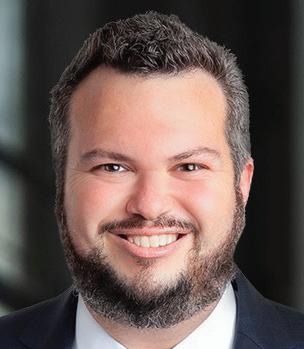 By: Jason D. Silver, Partner
KK TAKEAWAY:
By: Jason D. Silver, Partner
KK TAKEAWAY:
This opinion serves as a reminder of how important it is to monitor the efforts of service of process, to ensure timely completion of same on all parties, as these are the considerations the court will review when a request is made to extend the time to complete service. It also provides an example of how the simple issue of whether process was properly served can create years of litigation.
BACKGROUND:
In New York, a plaintiff is required to serve the Complaint within 120 days after the action is filed, pursuant to CPLR 306-b.
If service is not made within 120 days, a defendant may file a motion to have the action dismissed. Upon expiration of the 120 days, the judge shall dismiss the action, unless the plaintiff files a motion for extension of time to serve and establishes good cause for the delay or that an extension would be in the interest of justice. On those bases, the court may extend the time to complete service of process.
THE RECENT RULING:
In the case of PNC Bank, Nat’l Ass’n v. Sarfaty, 2021-06752, 2024 WL 1081125, at *1 (2d
12 | IN THE NOW
Dept., Mar. 13, 2024), a residential foreclosure action was initially filed on October 19, 2012, and became contested by borrower defendant Eliahu Sarfaty. The borrower filed a motion to dismiss the case in January of 2013, contesting service of process.
After the motion had been pending for years, the court held an evidentiary hearing and the borrower’s motion to dismiss for improper service was granted on July 26, 2018.
The lender then sought to vacate the dismissal order and the lower court granted the motion, providing an extension of time to serve the defendant.
Upon appeal, the Tribunal discussed that, pursuant to CPLR 306–b, a court may exercise its discretion to extend a plaintiff’s time to effectuate service for good cause shown or in the interest of justice, and that it requires two different types of review.
The Court upheld the lower court’s order allowing the extension of time to serve under the, “in the interest of justice” standard. This standard is broader than the “good cause,”
standard as it is intended “to accommodate late service that might be due to mistake, confusion or oversight, so long as there is no prejudice to the defendant.”
The appellate court discussed whether the plaintiff timely commenced the action and if the statute of limitations had expired by the time the plaintiff moved for the extension of time to serve.
The Court also pointed out that the plaintiff initially attempted service in a timely manner, and even though service was eventually defective, the borrower had actual notice of the case well within 120 days after its commencement.
The Court also held the borrower’s ability to defend against the case was not prejudiced in any way by the delay in service, that the plaintiff’s underlying action had merit based on record filings, and that the lower court had blamed both causes for the delays in the case.
The combination of the above factors satisfied the, “in the interest of justice” requirement despite being years into litigation in the case.
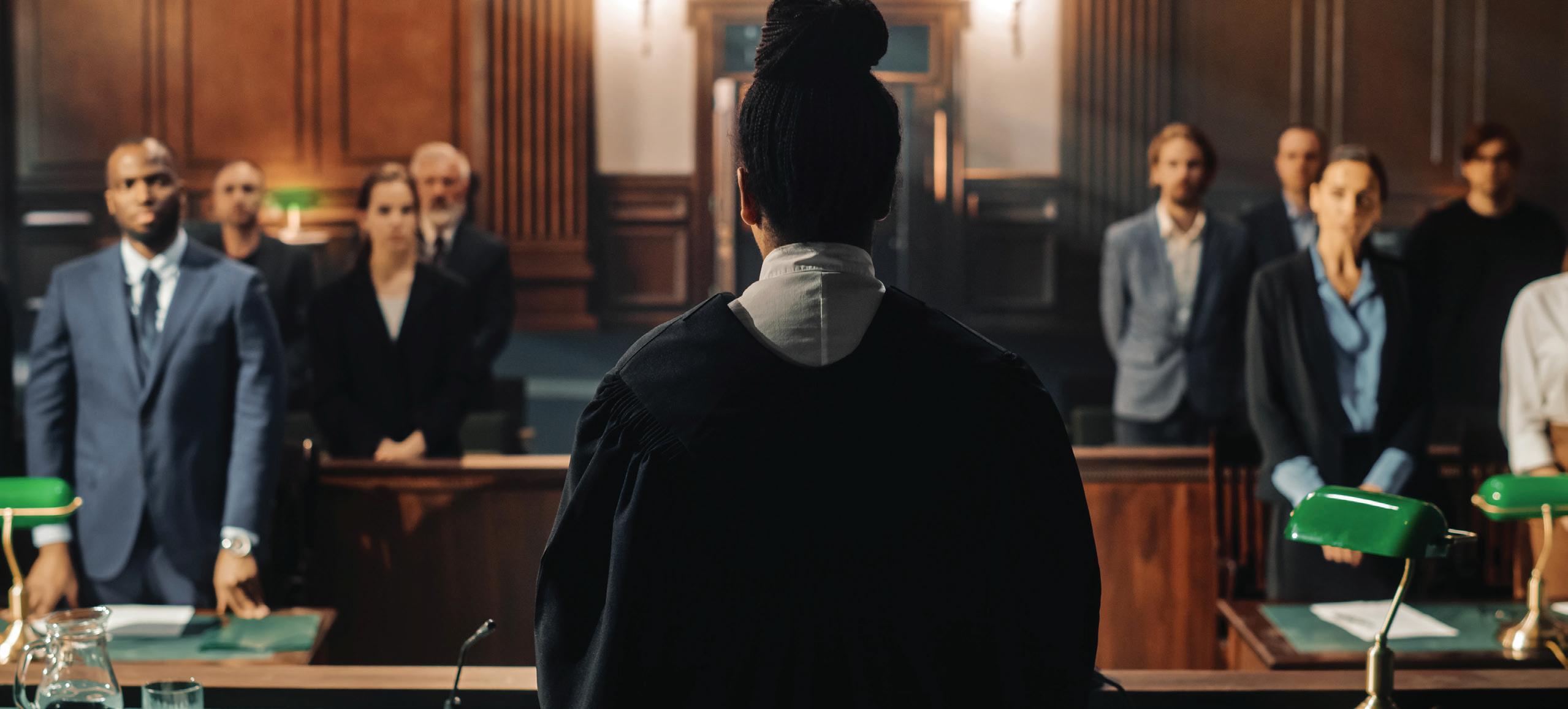
CLIENT ALERT


























































































































Florida’s 4th DCA overturns Desbrunes case!














































On February 14, 2024, the original Desbrunes opinion came out of the 4th DCA, which immediately upended all pending Florida foreclosure cases that involved deceased borrowers by 1) requiring lenders to add a personal representative in a deceased borrower case and 2) if no probate had been opened at all, requiring lenders to petition the Court and open a probate on behalf of the deceased borrower(s) and appoint a personal representative before proceeding.
If upheld, this required probate obligation on the lenders would unravel thousands of pending residential foreclosure cases and dramatically stall thousands more throughout Florida. More importantly, it would break longstanding precedent and have huge financial implications on the cost of foreclosing.
On May 8, 2024, the 4th DCA granted the lender’s Motion for Rehearing and overturned its opinion, relying on the fact that the property in dispute was “homestead” of the decedent and a personal representative is not required. Although this might carve out future litigation for nonhomestead foreclosures with deceased borrowers, Florida foreclosure law is finally back on track, and thousands of cases can move forward.
14 | IN THE NOW
DISTRICT COURT OF APPEAL OF THE STATE OF FLORIDA FOURTH DISTRICT
RONALD DESBRUNES, Appellant, v.
US BANK NATIONAL ASSOCIATION, AS TRUSTEE FOR STRUCTURED ASSET SECURITIES CORPORATION MORTGAGE PASS-THROUGH CERTIFICATES, SERIES 2006-AM1, Appellee.
No. 4D2022-2647





[May 8, 2024]
Appeal from the Circuit Court for the Seventeenth Judicial Circuit, Broward County; Andrea Gundersen, Judge; L.T. Case No. CACE19002572.
S. Alan Johnson of Sajlaw P.A., Fort Myers, for appellant.
Sara F. Holladay, Emily Y. Rottmann, and Kathleen Dackiewicz of McGuireWoods LLP, Jacksonville, for appellee.
Adam A. Diaz and Roy A. Diaz of Diaz Anselmo & Associates, P.A., Fort Lauderdale, David Rosenberg of Robertson, Anschutz & Schneid, Crane & Partners, PLLC, Boca Raton, and J. Anthony Van Ness of the Van Ness Law Firm, PLC, Deerfield Beach, for Amicus Curiae-Members of the USFN, American Legal & Financial Network, and the Legal League Members.
ON APPELLEE’S MOTION FOR REHEARING OR, ALTERNATIVELY, MOTION FOR REHEARING EN BANC OR CERTIFICATION
WARNER, J.
We grant the motion for rehearing, withdraw our prior opinion, and issue the following in its place.
Appellant challenges a final judgment of foreclosure, contending the trial court erred in granting foreclosure without the proper substitution of parties pursuant to Florida Rule of Civil Procedure 1.260(a) (1), for the borrower/property owner who had died during the proceedings. As the property was the decedent’s homestead, a legal representative of the decedent, such as a personal representative, did not have to be appointed, because homestead passes outside any administration of the decedent’s estate.1 See Clifton v. Clifton, 553 So. 2d 192, 194 n.3 (Fla. 5th DCA 1989) (“Homestead property, whether devised or not, passes outside of the probate estate. Personal representatives have no jurisdiction over nor title to homestead, and it is not an asset of the testatory estate.”); Ray v. Rotella, 425 So. 2d 94, 96 n.3 (Fla. 5th DCA 1982) (“The estate of a decedent is not an entity that receives the title and passes it on to the heirs or devisees if not conveyed to others for other purposes during administration.”). Accordingly, we affirm the final judgment of foreclosure. Affirmed.
DAMOORGIAN and FORST, JJ., concur.
* * *
Final Upon Release; No Motion for Rehearing Will Be Entertained.
1 In our withdrawn opinion, we overlooked the fact that the property was homestead, which was not expressly pointed out by appellee in its briefing. However, appellee did argue that it had complied with rule 1.260 by substituting the heirs. Because the property is homestead, we agree
| 15 IN THE NOW
CONTRIBUTORS MEET THE

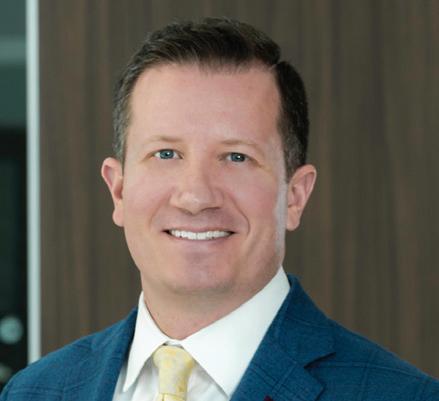 Jason M. Vanslette Editor and Chair of the Mortgage Foreclosure & Default Services Division
Jason M. Vanslette Editor and Chair of the Mortgage Foreclosure & Default Services Division
Email Jason M. Vanslette

Jason Vanslette is an “AV” rated Partner and Business Unit Leader, focusing his practice on Real Estate, and Mortgage Foreclosure & Default Services. In his practice, he represents mortgage servicers, mortgage lenders, and other financial service providers with foreclosure, bankruptcy, evictions, and title litigation matters. Jason overseas and manages the Real Estate and Mortgage Default and Lender Representation Divisions at Kelley Kronenberg, which has recently expanded to include Florida, Illinois, Indiana, and New York. Jason is rated AV Preeminent by Martindale-Hubbell, which indicates a demonstration of the highest professional and ethical standards and is the highest rating a lawyer can receive.
Jason began his legal career as an Assistant Public Defender for the Office of the Public Defender – 9th Judicial Circuit in Orlando, FL. During that time, he provided criminal defense representation to more than 200 clients simultaneously and served as Lead Chair on more than 15 jury trials.
Prior to joining the firm, Jason worked as an Attorney for a firm in Fort Lauderdale, FL, where he provided legal representation to major financial institutions and mortgage servicers in various counties throughout the state, while focusing on non-jury trials and contested litigation.
Jason earned a Bachelor of Arts degree from Florida State University. He went on to earn a Juris Doctorate degree from Nova Southeastern University, Shepard Broad Law Center where he earned a spot on the Dean’s List for three consecutive years and received the Pro Bono Honors Award. While attending law school, he served as an executive board member for Law Student Advisor, Chief Executive and Host of WLAW Radio and member of the Nova Trial Association.
16 | IN THE NOW
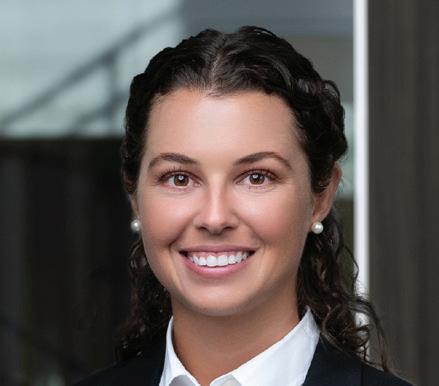 Jordan E. Shealy Attorney
Email Jordan E. Shealy
Jordan E. Shealy Attorney
Email Jordan E. Shealy

Jordan Shealy is an Attorney at Kelley Kronenberg, where she handles real estate and mortgage foreclosure & default services. She also assists banks and other financial service providers with regulatory, enforcement, transactional, and litigation matters.
Jordan earned her Bachelor of Arts degree from the University of Florida, where she majored in English. During her time at the University of Florida, Jordan was a member of the Pre-Legal Honors Society.
Jordan then went on to earn her Juris Doctor degree from Nova Southeastern University-Shepard Broad College of

Bryan S. Jones
Attorney
Email Bryan S. Jones

Bryan Jones is an Attorney at Kelley Kronenberg, where he handles matters related to mortgage foreclosure & default services and assists banks and other financial service providers with regulatory, enforcement, transactional, and litigation matters.
Law, where she was an associate Editor for the ILSA Law Journal, as well as a member of the Moot Court Society. Jordan was the Vice President of her School’s Association of Business Law Students and the Transactional Law Practice Group President. She gained legal experience while earning her J.D. by attending the Trial Advocacy Summer Institute, being a pupil in Craig S. Barnard Inn of Court, and working as a Teaching Assistant to Adjunct Professor Gary Brown.
While in school, Jordan worked at Kelley Kronenberg as a Summer Associate and Law Clerk, where she worked directly with our construction department. Jordan gained experience by summarizing discovery reports, trial records, briefs, and other documents. She drafted deposition reports, pleadings, letters to insurance adjusters, and tender letters to carriers. She also served as a Judicial Intern to Judge Marcia Cooke for the United States District Court, Southern District of Florida.
Before joining Kelley Kronenberg, Bryan gained extensive experience representing corporate and non-corporate clients in variety of litigation matters in state and federal court, including escalated mortgage foreclosure, commercial, timeshare, consumer, and employment litigation.
Bryan received his Bachelor of Science in Journalism from the University of Florida. He went on to earn his Juris Doctor degree from Florida International University College of Law, where he made Dean’s list, ranked in the top 20% of his class and received several book awards.
| 17 IN THE NOW
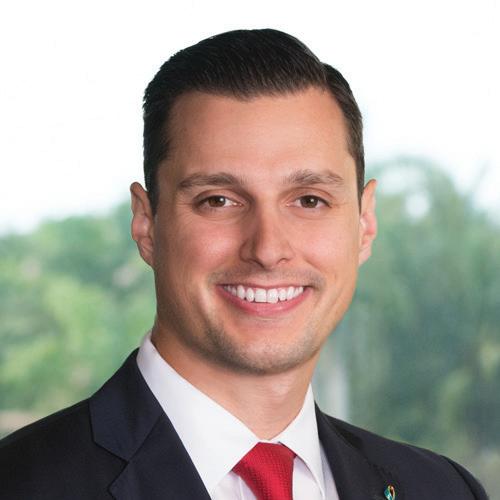
Marc A. Marra
Partner
Email Marc A. Marra

Marc Marra is a Partner at Kelley Kronenberg focusing on the Firm’s Real Estate Practice. With over ten years of experience, his practice focuses on assisting banks, lenders, mortgagees, and financial service providers with enforcing their rights in security instruments on real property. He protects, enforces, and litigates his clients’ rights in security instruments on real estate. He
also represents Condominium Associations and HOAs throughout South Florida as general counsel.
Marc is the founder of Heart Warriors, Inc., a non-profit corporation which supports children with Hypoplastic Left Heart Syndrome (HLHS) and other congenital heart diseases, and their families. This cause is very close to him as his daughter, Charlotte, has HLHS, and has undergone multiple major open-heart surgeries.
Marc prides himself on being available to his clients 24/7 and on his ability to assist with issues stemming from any dispute related to real estate – title, general real estate litigation, bankruptcy, sale, etc.
 Irina Danilyan Partner
Irina Danilyan Partner
Email Irina Danilyan

Irina Danilyan is a Partner at Kelley Kronenberg, where she specializes in mortgage foreclosure & default services and the representation of creditors in bankruptcy matters incident to mortgage foreclosures.
Irina previously focused her practice on mortgage foreclosure litigation and assisting banks and other financial service providers with regulatory, enforcement, transactional and litigation matters. Irina has extensive
experience handling contested and uncontested foreclosure litigation. She handled pre-judgment and post-judgment foreclosure matters, including protection of creditors’ rights in condominium termination, probate, and criminal forfeiture matters.
Irina earned her Bachelor of Science degree in Management, cum laude, from Long Island University. She then went on to earn her Juris Doctor degree from Nova Southeastern University College of Law. During law school, Irina received a CALI Book Award in recognition of achieving the highest score in her Legal Research & Writing course and served as a Professor’s Research Assistant.
Irina is fluent in Russian.
18 | IN THE NOW MEET THE CONTRIBUTORS
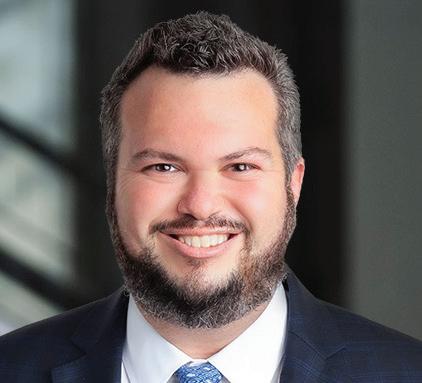 Jason D. Silver Partner
Email Jason D. Silver
Jason D. Silver Partner
Email Jason D. Silver

Jason Silver is a Partner at Kelley Kronenberg, where he concentrates on matters related to all aspects of mortgage foreclosure & default services, assisting banks and other financial service providers with regulatory, enforcement, transactional and litigation matters, and representing commercial property owners and property managers with tenant lease compliance and breach issues.
Jason has close to a decade of experience in contested foreclosure litigation, guiding creditors from the beginning to completion of a court action.
Prior to joining the firm, Jason worked as an Associate Attorney at an AmLaw 200 firm focusing his practice
in the areas of banking and consumer finance. He also practiced bankruptcy and general litigation as well as municipal and government law, having presided as the Deputy Municipal Attorney for the Village of El Portal, Florida.
Jason received his Bachelor of Science in Public Relations with a minor in History from the University of Florida where he was elected to the Florida Blue Key Honor Society and awarded the Honorable Mention for the Outstanding Leadership and Service Award.
He then went on to earn his Juris Doctor degree from St. Thomas University School of Law. While in law school, Jason received a Book Award in Appellate Advocacy. Jason also worked as a legal intern for the Office of the City Attorney at the City of Miami in the Land Use, Zoning, and Quality of Life Division and interned for the Hon. Judge David Gersten (ret.) at the Third District Court of Appeal.
Jason is an avid runner and successfully completed the ING Miami Half Marathon and 13.1 races in 2011 and the Hollywood Beach Half Marathon in 2020.
| 19 IN THE NOW

ACCOLADES AWARDS AND FIRM AWARDS
Kelley Kronenberg has been the recipient of numerous awards and honors both firm-wide and for a number of our practices, including individual accolades. Below is a select list of recognition and awards:





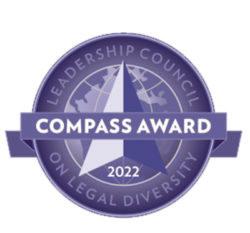








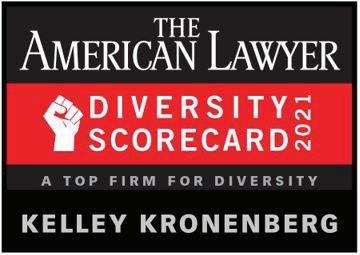

20 | IN THE NOW
2021 – 2023 Top Workplaces USA Energage 2020 – 2023 Top Workplaces Sun Sentinel 2022 – 2023 Best Places To Work New Orleans CityBusiness 2019 – 2024 Best Law Firms U.S. News - Best Lawyers 2021 – 2022 Top Places To Work Ragan Communications 2019, 2021 – 2023 Women In Law Scorecard The National Law Journal 2017 – 2022 Biggest Law Firms in Florida Florida Trend 2016 – 2023 Largest Law Firms Tampa Bay Business Journal 2020 – 2022 Business of the Year South Florida Business Journal 2011 – 2022 100 Largest Law Firms Daily Business Review 2017 – 2022 400 Largest Law Firms Law360 2016 – 2023 Largest Central Florida Law Firms Orlando Business Journal 2022 Best Midsize Law Firm To Work For Vault 2021 Diversity Team Award Profiles in Diversity Journal 2021 Diversity Scorecard The American Lawyer 2020 – 2022 Compass Award Leadership Council on Legal Diversity 2012 – 2023 NLJ 500 The National Law Journal 2012 – 2023 Top Law Firms South Florida Business Journal

REAL ESTATE ATTORNEY AWARDS


South Florida Business and Wealth: Real Estate Awards
Jason M. Vanslette Top Lawyer
Jason M. Vanslette



American Legal & Financial Network, JPEG Picture the Future Award
Jason M. Vanslette
Martindale Hubbell AV Preeminent Rating
Jason M. Vanslette
Marc A. Marra
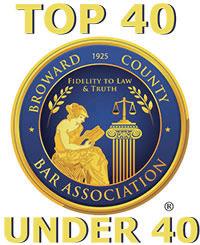
Broward County Bar Association, “Top 40 Under 40”, 2021
Marc A. Marra

Best Lawyers in America: Ones to Watch
Marc A. Marra
Jason D. Silver

Fort Lauderdale Illustrated “Top Lawyer”
Jason M. Vanslette
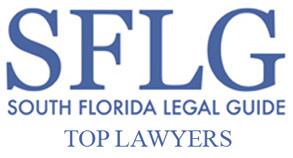
South Florida Legal Guide “Top Lawyers”
Jason M. Vanslette

Legal Elite “Up and Comer”
Marc A. Marra

Florida Super Lawyers “Rising Stars”
Jason M. Vanslette, Marc A. Marra, Jason D. Silver, Bryan S. Jones
| 21 IN THE NOW
Employees Attorneys Locations
Founded in 1980, Kelley Kronenberg is an award winning, multi-practice national law firm with 495 employees, 220 attorneys, and 16 locations throughout Florida and the United States.
We are privileged to represent large public and private companies, small businesses, and individuals nationwide. With more than 40 practice areas, and growth on the horizon, we offer a comprehensive catalog of legal services to protect your legal interests in business and at home. Our firm is progressive and technologically advanced, while remaining true to our customer service heritage: integrity, ingenuity, and sincerity. Ever mindful of our history, but intensely committed to our future, we offer our clients a small firm feel with large firm resources. more than with over the convenience of 495

240
16
LOCATIONS

FORT LAUDERDALE
10360 W. State Road 84
Fort Lauderdale, FL 33324
Phone: (954) 370-9970
ORLANDO
20 North Orange Avenue, Suite 704
Orlando, FL 32801
Phone: (407) 648-9450
TAMPA
1511 North Westshore Blvd., Suite 400 Tampa, FL 33607
Phone: (813) 223-1697
DAYTONA
128 Orange Avenue, Unit 306 Daytona Beach, FL 32114
Phone: (754) 888-5437
NEW YORK CITY
250 Park Avenue,7th Floor
New York, NY 10177
Phone: (845) 306-7867
CHICAGO
20 N. Clark Street, Suite 1150
Chicago, IL 60602
Phone: (312) 216-8828
JACKSONVILLE
10245 Centurion Parkway N, Suite 100 Jacksonville, FL 32256
Phone: (904) 549-7700
MERRILLVILLE
233 E. 84th Drive, Suite 200 Merrillville, IN 46410
Phone: (317) 731-6243
BY APPOINTMENT ONLY
SHORT HILLS
51 John F. Kennedy Parkway
First Floor West
Short Hills, NJ 07078
Phone: (908) 403-8174
ATLANTA
1100 Peachtree Street NE, Suite 200
Atlanta, GA 30309
Phone: (404) 990-4972
MIAMI
220 Alhambra Circle, Suite 410
Coral Gables, FL 33134
Phone: (305) 503-0850
NEW ORLEANS
400 Poydras Street, Suite 2400
New Orleans, Louisiana 70130
Phone: (504) 208-9055
TALLAHASSEE
6267 Old Water Oak Road, Suite 250
Tallahassee, FL 32312
Phone: (850) 577-1301
WEST PALM BEACH
1475 Centrepark Blvd., Suite 275
West Palm Beach, FL 33401
Phone: (561) 684-5956
INDIANAPOLIS
10475 Crosspoint Blvd., Suite 218 Indianapolis, IN 46256
Phone: (317) 731-6243
NAPLES
1570 Shadowlawn Drive
Naples, FL 34104
Phone: (239) 990-6490

OUR

WWW.KKLAW.COM | 800.484.4381


 Jason M. Vanslette Editor and Chair of the Mortgage Foreclosure & Default Services Division
Jason M. Vanslette Editor and Chair of the Mortgage Foreclosure & Default Services Division



 By: Jason M. Vanslette, Editor and Chair of the Mortgage Foreclosure & Default Services Division
By: Jason M. Vanslette, Editor and Chair of the Mortgage Foreclosure & Default Services Division
 By: Jordan E. Shealy, Attorney
By: Jordan E. Shealy, Attorney

 By: Bryan Jones, Attorney
KK TAKEAWAY:
By: Bryan Jones, Attorney
KK TAKEAWAY:

 By: Marc A. Marra, Partner
By: Marc A. Marra, Partner


 By: Irina Danilyan, Partner
By: Irina Danilyan, Partner
 By: Jason D. Silver, Partner
KK TAKEAWAY:
By: Jason D. Silver, Partner
KK TAKEAWAY:
















































































 Jason M. Vanslette Editor and Chair of the Mortgage Foreclosure & Default Services Division
Jason M. Vanslette Editor and Chair of the Mortgage Foreclosure & Default Services Division
 Jordan E. Shealy Attorney
Email Jordan E. Shealy
Jordan E. Shealy Attorney
Email Jordan E. Shealy



 Irina Danilyan Partner
Irina Danilyan Partner
 Jason D. Silver Partner
Email Jason D. Silver
Jason D. Silver Partner
Email Jason D. Silver































